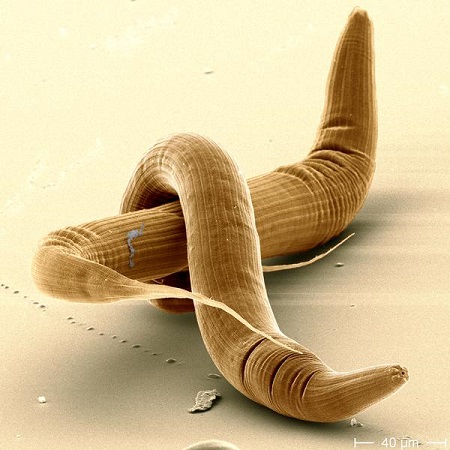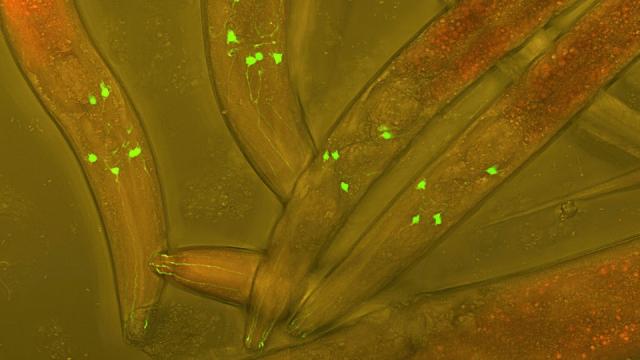Self-fertilisation isn’t uncommon in the animal world. Nematode worms have made the switch from sex to self-fertilisation several times. A new study found that switching to self-fertilisation shaves time off lifespans in a population, and researchers have a few ideas as to why.
Multiple species have managed to get along without males. Many are anomalous, like a self-cloning lizard or a zebra shark that manages to give “virgin birth” to non-clones by self-fertilising and re-mixing its genes. There is one genus of roundworm, Pristionchus, that includes multiple species who have given up reproducing through male-female sex (dioecious), in favour of being self-fertilising hermaphrodites (androdioecious). Researchers from the Max Planck Institute of Developmental Biology took a closer look at this genus and found that self-fertilisation was associated with shorter lifespans for self-fertilising hermaphrodites.
The researchers were able to figure out one thing that doesn’t cause shorter lifespans. In the eleven species examined, there were no differences in the amount of offspring produce by the six dioecious versus the five androdioecious species. Hermaphroditic worms aren’t exhausting their bodies by producing more offspring.
What does cause the early death? Researchers have three different ideas. The first two are connected to the simple fact that, in order to be successful in terms of evolution, no one needs to live a day after they have produced their offspring. Self-fertilising worms start breeding earlier, produce a set amount of offspring earlier, and have no need to live any longer than that. They shed their post-reproductive life the way we shed our prehensile tails. It’s also possible that their manner of self-fertilisation has perpetuated defects that shorten their lifespan. As long as they have the same amount of offspring, it won’t affect their population.
The third idea holds that long life is a sort of side-effect of the rigors of mating. As you can see from this scanning electron microscope image, roundworm mating is a rough affair.

Brutal. Credit: MPI f. Developmental Biology/ Juergen Berger
The researchers speculate that the females are built “tougher” to get through the mating process, and that resilience might help them live a longer life.
[The American Naturalist, Max Planck Institute of Developmental Biology]
Credit: Heiti Paves
